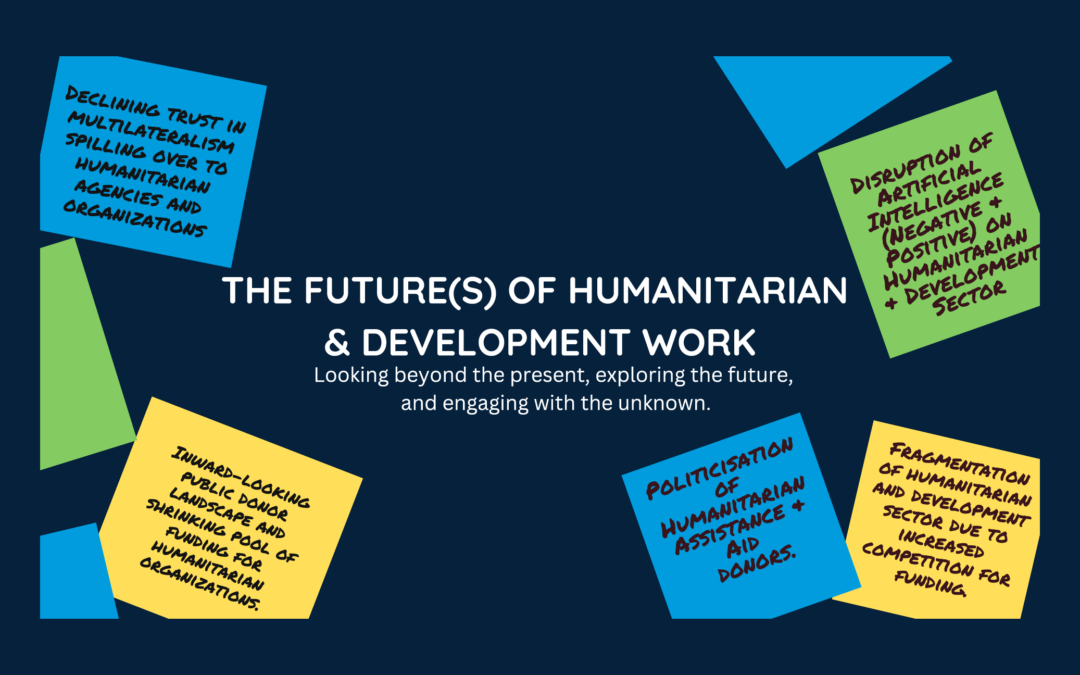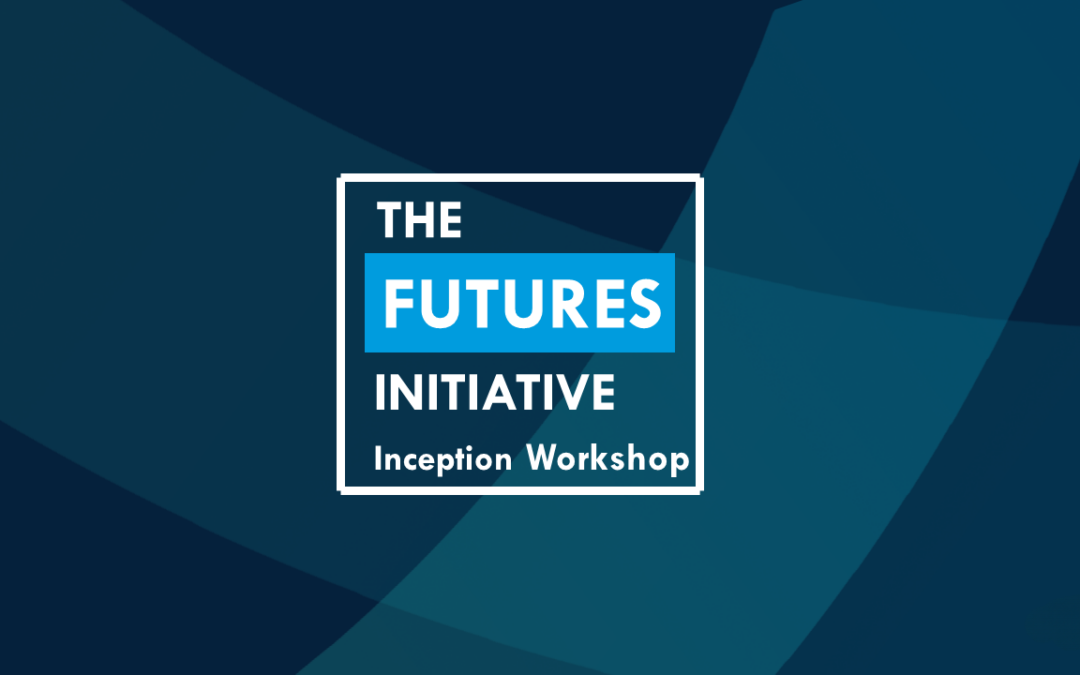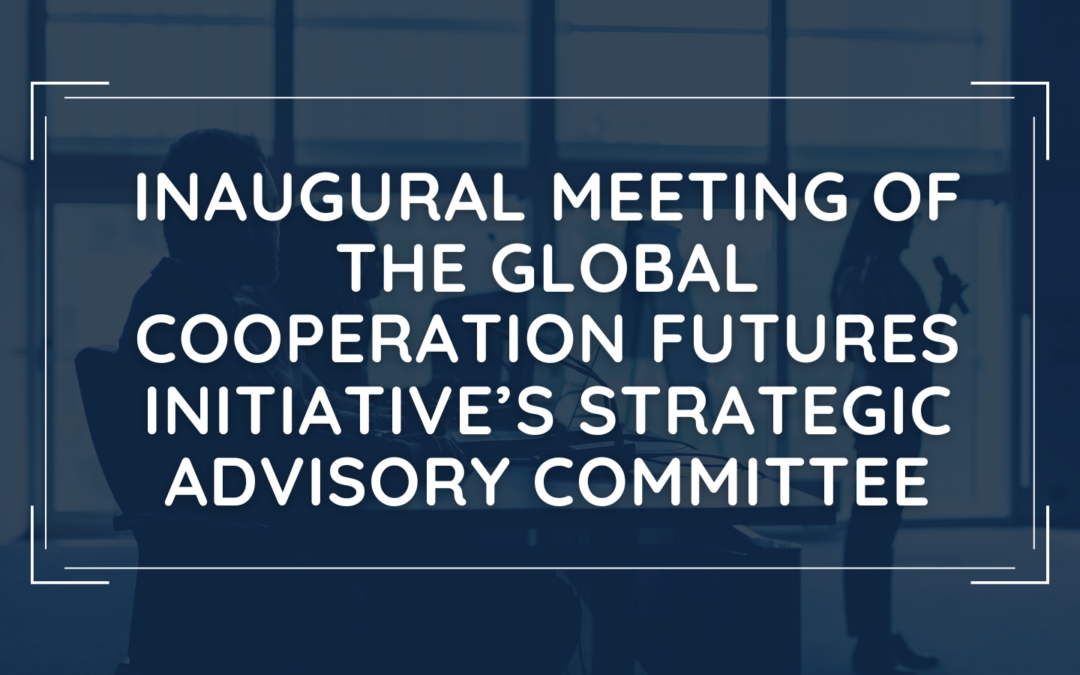
by Cooperation Canada | Jul 4, 2023 | Futures, News
On June 13th, 2023, Cooperation Canada facilitated a workshop during The Humanitarian Response Network Triannual Meeting in Toronto. The workshop was one of many Cooperation Canada intends to convene under the umbrella of its Futures Initiative and aimed at prompting discussions about the future(s) of global cooperation, in this case, the future(s) of Humanitarian and Development work.
The intent of the session was to capture through strategic conversations, humanitarian and development stakeholder perspectives, knowledge, and experiences to better understand systemic complexities and drivers of change. This was achieved by getting participants to reflect on current challenges, risks and vulnerabilities, emerging issues, and potential disruptors in their day-to-day activities and in the sector at large. Attendees were then guided through a visioning exercise, enabling them to think creatively about the future of Humanitarian and Development work and reimagining global cooperation.
Anticipating that participants might struggle with envisioning a future further away from the current realities of urgent response to growing and increasingly complex crises, Cooperation Canada’s Research and Program Officer, along with a Design Strategist and Foresight Expert, sought to create an immersive experience, taking participants from the familiar present to the unknown and plausible future.
Three stories from the session
The first is one of a sector faced with growing financial and operational challenges, rigid funding requirements, government restrictions and sanctions, as well as constrained resources to respond to the growing need for aid.
The second depicts a sector increasingly concerned with the declining trust in social institutions, progressively shrinking donor bases, development-humanitarian sector fragmentation, legislative barriers to and the politicization of aid, increased competition for funds, as well as the impact misinformation on INGOs in the digital age.
The third story reflects a vision of a more proactive, anticipatory humanitarian and development sector characterized by unity, intra-sectoral collaboration and coordinated efforts to tackle growing needs and emerging challenges. This is to be achieved through innovative and sustainable funding architectures, transdisciplinary resource sharing, the full application of humanitarian principles, and a shared conceptualization for the sector’s future.
While these stories are not representative of the sector at large, they reinforce some of the main narratives that dominate discourse on global cooperation and are of extreme value to the development of plausible future scenarios. As we engage with more partners in these reflective discussions, we look forward to seeing innovative ideas and storylines emerge and developing them into convergent narratives about what might be of cooperation in the next 7-10 years.

by Cooperation Canada | May 2, 2023 | Futures, News
On April 27, 2023, Cooperation Canada hosted the inception workshop of its Global Cooperation Futures Initiative. The initiative, launched in October 2022 with funding from the International Development Research Centre, aims to reimagine the next generation of international cooperation by developing three scenarios of plausible futures of cooperation in the next seven to ten years.
In her opening remarks, Kate Higgins, Cooperation Canada’s Chief Executive Officer, expressed gratitude to the initiative’s Strategic Advisory Committee shared her hopes that the Futures Initiative will help strengthen the capacity of Canadian civil society organizations engaged in international cooperation think systematically about the future, and adapt to changing dynamics in the international ecosystem.
Andy Ouedraogo, Cooperation Canada’s Research and Program Officer and workshop facilitator, presented the project’s objectives, the temporal and geographical scope, impact pathway, consultant teams, and expected outputs. She introduced strategic foresight as a useful tool and method for better future preparedness and policy innovation for actors in global development cooperation.
The lively discussions that took place during this workshop attest to the interest in this initiative of the over 60 participants from the Cooperation Canada membership and beyond, including organizations based in Africa, Asia, and Europe. At the start of the workshop, a survey captured the participants’ understanding of strategic foresight, and their organizations’ future preparedness. 84% of respondents admitted that their organizations spent more time responding to challenges than anticipating them. On their knowledge of strategic foresight, 50% claimed to have satisfactory knowledge of the discipline. These insights will be considered in the planning and evaluation of the initiative’s next activities.
At Cooperation Canada, we’re excited to engage with Cooperation Canada members and others on this initiative, to prepare and position ourselves to be relevant, and have impact, in a fast-changing Canadian and global context. We look forward to your continued engagement!

by Cooperation Canada | Mar 28, 2023 | Futures, News
On March 10, 2023, members of the Strategic Advisory Committee of the Global Cooperation Futures Initiative met for their inaugural meeting. Through the Futures Initiative, Cooperation Canada aims to reimagine global development cooperation futures and inform the positioning of international cooperation actors in a post-2030 era. Using strategic foresight, the project takes a systematic approach to looking beyond the present, exploring the future, and engaging directly with the unknown.
Members of the Advisory Committee were selected from around the world for their experience in strategic foresight and international cooperation and represent various sectors, including academia, civil society organizations (CSOs), and multilateral organizations.
The inaugural meeting was opened by Kate Higgins, Cooperation Canada’s Chief Executive Officer, who in her opening remarks, reiterated the organization commitment to fostering a more collaborative, connected, and inclusive enabling environment for the Canadian international cooperation sector and beyond. She stressed the importance of partnerships in understanding and adapting to the increasingly volatile and complex space in which civil society organizations operate. Ms. Higgins also expressed hope that the Futures Initiative would help strengthen the capacity of Canadian CSOs to tackle emerging challenges, adapt to rapidly changing dynamics in the international ecosystem and think systematically about the future.
Cooperation Canada’s Research and Program Officer then presented the primary objectives of the project, key areas of focus, milestones, and expected outputs. The committee discussed the various levels of participation and engagement of different stakeholder groups. The Committee will reconvene at the project inception workshop in April.
Committee Members bio profiles



